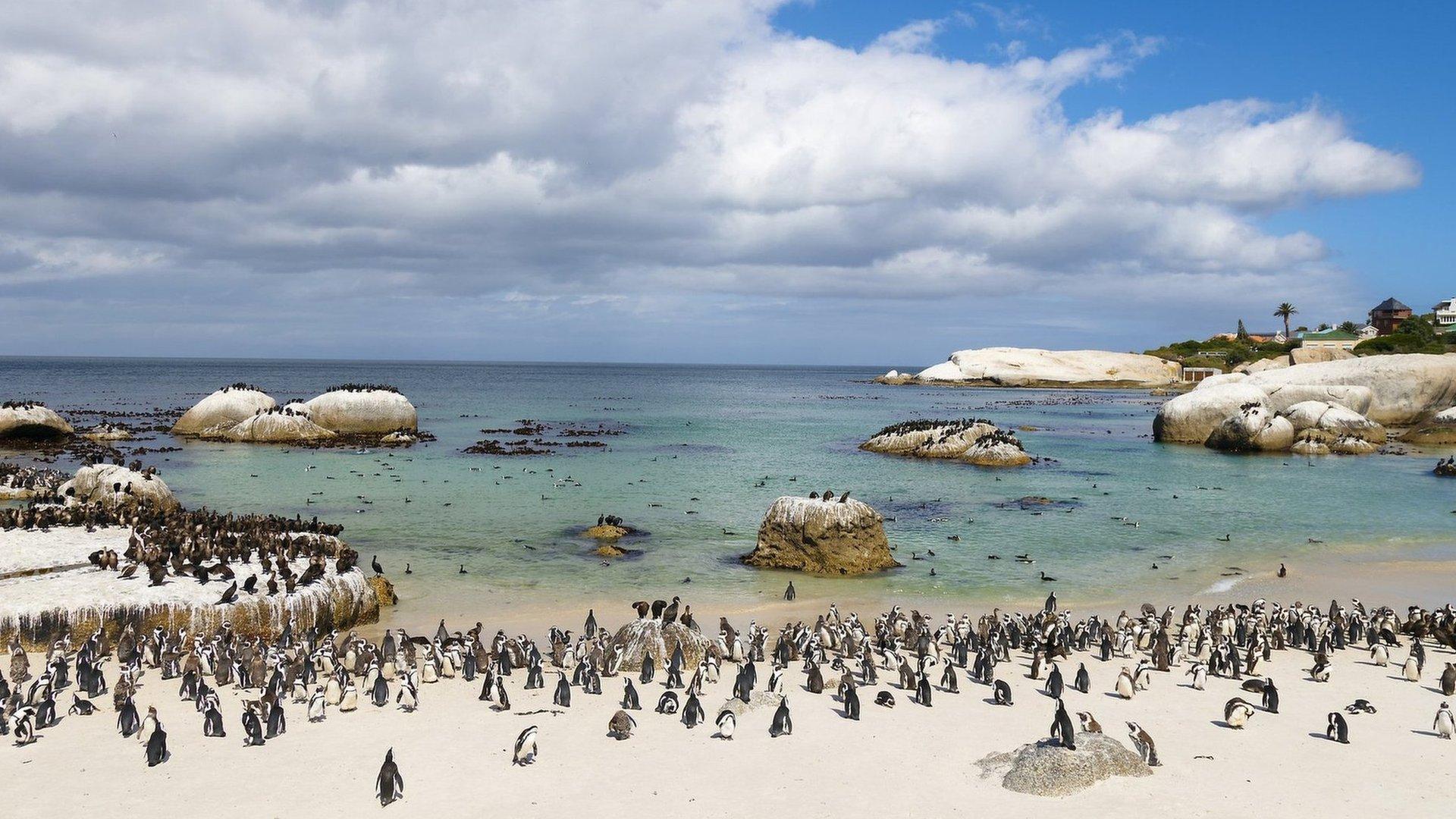Penguins: New clinic opens in South Africa to protect endangered species
- Published
- comments

A new clinic has opened in South Africa to help protect the endangered African penguin.
The world famous penguins - also known as Cape penguins - live on the islands and coast of South Africa, including in Cape Town, and tourists from all over the world travel to the country to see them.
The penguins have lived in South Africa for millions of years, however due to climate change and overfishing their numbers have halved in the last twenty years.
As a result, a special penguin clinic has been built on the coast to help protect and look after the species.
The penguins are brought to the clinic for a health check-up and to access any treatment they may need.
Around a thousand penguins are rescued a year and looked after by a group of twenty carers.
African penguins are on the International Union for Conservation of Nature's red list, meaning they face a high risk of extinction.
Because African penguins live in a warm climate, they don't migrate like other birds do - instead they remain in a large colony, working together to keep one another safe.
Gavin Peterson, a ranger at the reserve said, "Climate change is changing the life of this colony. The birds don`t reproduce like they used to. Because of overfishing the chicks are thinner."
He added, "The penguins are trapped in the nets. Today the population is decreasing."
The centre has a special swimming pool for baby and injured penguins to help them get used to the open water, so they can be released back into the wild.
Aidan Belligan, one of the carers at the clinic said, "We let them swim for 20 minutes, three times a day. It allows us to see if their feathers are waterproof."
"It`s very important otherwise in the wild they can get cold," he added.
Once the animals are well enough, the centre transports them in special cardboard boxes back to the coast so that they can be released back to their colonies and natural habitat to return to their normal lives.
